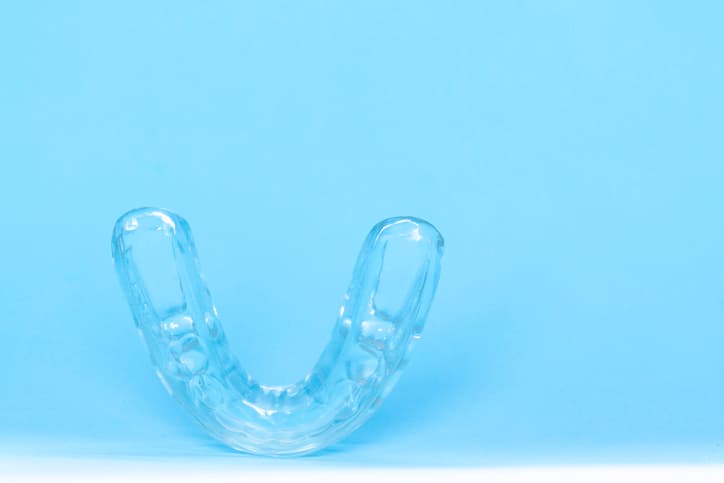 If you experience pain in your neck and jaw area, a clicking or popping noise when you open or close your mouth, or a limited range of motion in your jaw, you might be dealing with a temporomandibular joint (TMJ) disorder. Disorders of the TMJ are thought to affect upward of 10 million people in North America alone. While using a nightguard for TMJ treatment is common, it is prudent to explore your options.
If you experience pain in your neck and jaw area, a clicking or popping noise when you open or close your mouth, or a limited range of motion in your jaw, you might be dealing with a temporomandibular joint (TMJ) disorder. Disorders of the TMJ are thought to affect upward of 10 million people in North America alone. While using a nightguard for TMJ treatment is common, it is prudent to explore your options.
Effectiveness of Night Guards
A nightguard is a plastic piece that you fit over your teeth and wear while you sleep. Although these kinds of guards have been proven effective for those who grind their teeth, the National Institute of Dental and Craniofacial Research (NIDCR) states that research into the effectiveness of guards as a treatment for TMJ disorders has not been shown to provide significant pain relief; however, you should check with your dentist to see if a nightguard may be helpful for you.
If you or a family member is dealing with a TMJ disorder, the NIDCR recommends treatments that take a “less is more” approach and protect your natural bite. Consequently, the institute advises that if a nightguard is used for treatment, it should be done over a short period and care should be taken that the guard does not affect or change your natural bite.
At-Home Treatment of TMJ
If you and your doctor decide that a night guard for TMJ disorders is not for you, these alternative treatments may help:
- Practice relaxation and light stretching techniques to decrease tension in your jaw.
- Avoid making sharp movements with your jaw.
- Use an ice pack to decrease inflammation.
- Modify your diet to include softer foods that require less chewing power.
If you are concerned about pain in your jaw or the muscles around your TMJ, check with your health care provider to make sure that the problem is properly diagnosed and discuss the best course of treatment.
